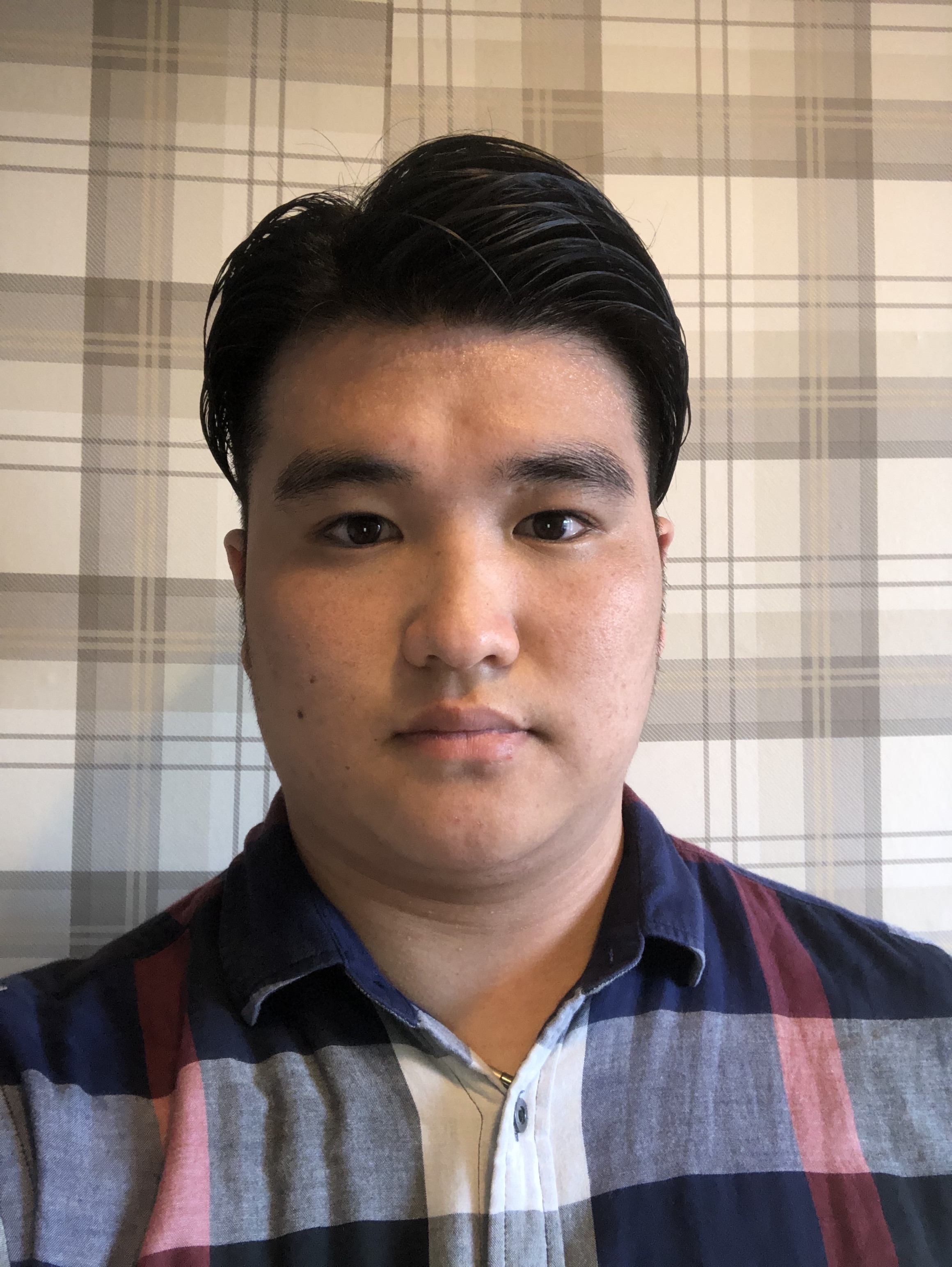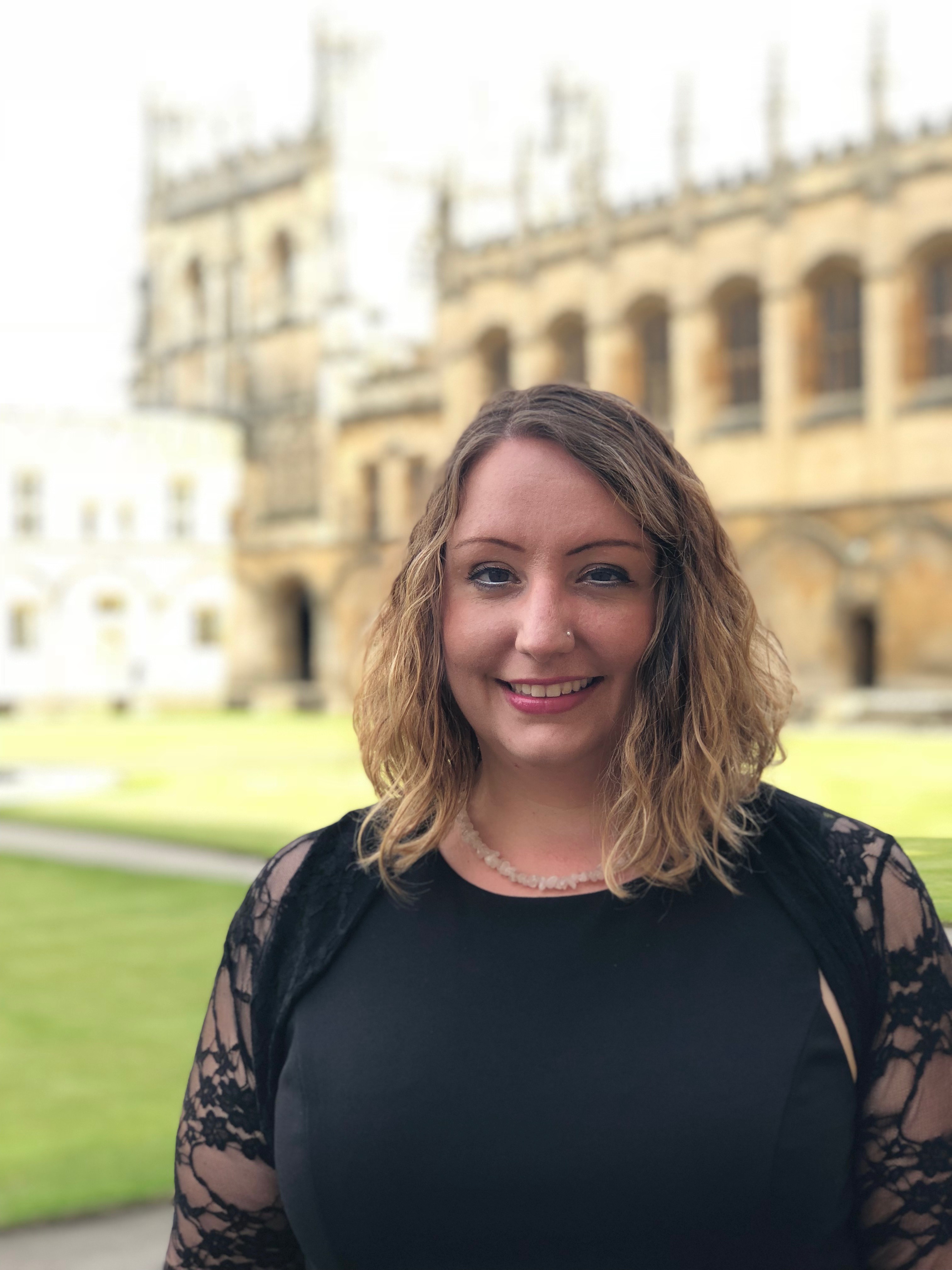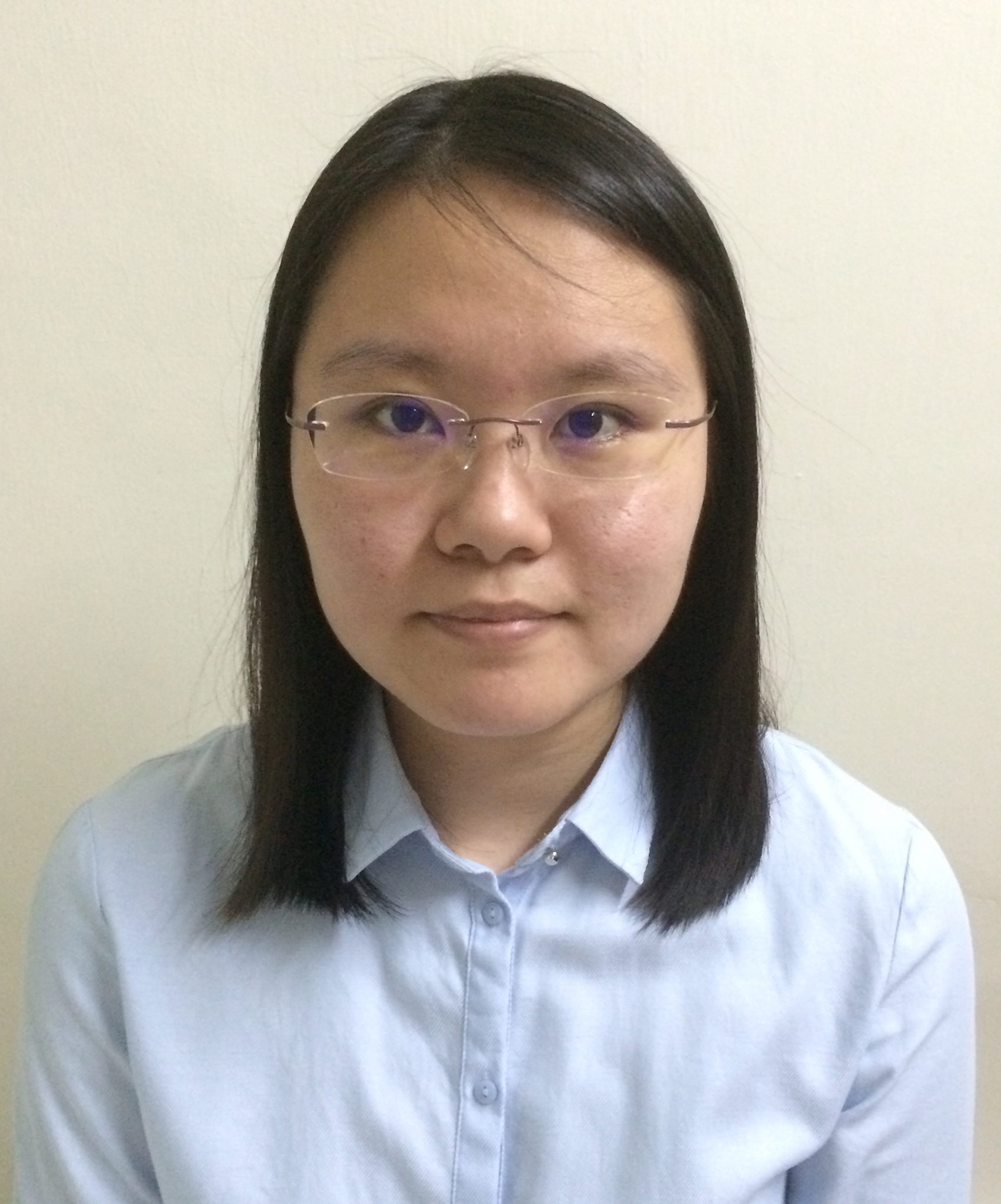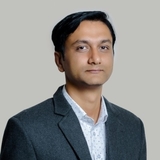Previous PhD, post-doc and visiting members who worked in our group.
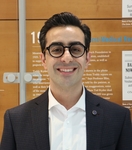
Mahdi received this PhD in Mechanical Engineering from University of Toronto in 2019. His PhD work focused on fundamental understanding of structure-property relationships and new manufacturing routes to microscopically engineer the structures and properties of polymer nanocomposites and foams for emerging application. Before joining the NanoManufacturing group, he studied nanomechanics of polymer single crystals and 2D materials as a postdoctoral fellow at UC-Berkeley and University of Toronto (cross-appointment). His current research at University of Cambridge is focused on the development of the well-defined 3D nanomaterial sensors, and actuators. In particular, he has developed the CNT forests grown on the lithographically developed patterns and used them as the 3D structural backbones to provide electron transport and hybridised them with redox active materials to dynamically actuate 3D microstructures by exploiting electrochemically driven reactions.
Contact: smh204@cam.ac.uk
Davor received his PhD degree in mechanical engineering from the University of Michigan, Ann Arbor. He investigates carbon nanotube (CNT) nanocomposite and polymer microstructures and actuators for use in microtextured and active surfaces under Dr. A. John Hart. Actuators were fabricated using capillary driven infiltration of CNT microstructures with various active materials and replica molding (REM) of master templates in both thermally and optically active liquid crystal networks (LCN). His long term interests include synthesis of carbon nanomaterials, nanomanufacturing, additive manufacturing of structural and active composites, novel sensors and microactuators.
Contact: DC599@cam.ac.uk
Buddha Deka Boruah received a Newton International Fellowship (NIF-Royal Society) to join the Nanomanufacturing as a postdoctoral fellow. He obtained his B.Sc. in Physics from Cotton college, Assam, India and subsequently his M.Sc. degree in Physics from Indian Institute of Technology (IIT) Guwahati, India. Thereafter, he received his M.S. in Engineering-Ph.D. from Indian Institute of Science (IISc), Bangalore, India. His research interests involve Electrochemical Energy Storage Systems, On-chip and Planar Energy Storage Devices, Self-powered Energy Storage Devices and Advanced Hybrid Devices: Energy Conversion and Storage.
Contact: bd411@cam.ac.uk
Wes was awarded his PhD in Chemistry in 2014 from the University of Newcastle (Australia). He then worked as a visiting researcher at the University of New South Wales (Australia) and as a postdoc at Argonne National Laboratory (USA). His research has mainly focused on understanding the physicochemical-electrochemical properties of cathodes and anodes for Li-ion, Na-ion and Li-primary batteries. At Argonne his research investigated strategies to increase the lithium inventory in Li-ion batteries with Si-containing anodes. As part of the Faraday Degradation project, his current research is focused on how conductive carbon influences the electrolyte and NCM electrode stability at high voltage.
Contact: wmd23@cam.ac.uk
Hsin-Ling received her BSc and MSc in the Department of Engineering and System Science from National Tsing Hua University (Taiwan). She then worked as an R&D engineer at the Taiwan-based polyimide film manufacturer Taimide Technology, after which she moved to Germany for doctoral studies at Johannes Gutenberg University Mainz. Her thesis focused on studies of nematic and smectic liquid crystalline order in the spherical shell geometry, involving microfluidic fabrication of small molecular and elastomeric liquid crystal shells. She carried on liquid crystal research in device applications in the Photonics and Sensors Group (CAPE, Cambridge University), where she worked on dye-doped liquid crystals and the roll-to-roll production of switchable liquid crystal panels. Her current project concerns roll-to-roll manufacturability of nano-materials.
Contact: hll44@cam.ac.uk
Yeonguk Son is currently a postdoctoral associate at the laboratories of both Dr. Michael De Volder (IfM) and Dr. Adam Boies (Division of Energy) at the University of Cambridge. Yeonguk received his B.S. degree (2012) and Ph.D. degree (2018) in the Department of Energy and Chemical Engineering at the Ulsan National Institute of Science and Technology (UNIST, Republic of Korea). His research interests are materials design and analysis for lithium-ion batteries and next generation energy storage applications. His ultimate goal is to develop innovative energy storage devices or electrode materials which could replace current lithium-ion batteries or its electrode materials.
Contact: ys522@cam.ac.uk
Dr Xiao Zhang
Xiao Zhang received his PhD degree on Condensed Matter Physics from Prof. Sishen Xie's group, in the Institute of Physics, Chinese Academy of Science, investigating the preparation of some novel carbon nanomaterials (especially ultralong suspended CNTs). He developed a novel optical visualization method for single tubes, with which intrinsic optical and thermal properties could be characterized. In University of Cambridge, during his research associate period at Department of Engineering, he will focus on the subject of CNT Synthesis and Characterization (especially on the thermal conductivity enhancement) by working together in the group of Dr. Adam Boies in Division of Energy, and the Nanomanufacturing group of Dr. Michael De Volder in Institute for Manufacturing.
Contact: xz371@cam.ac.uk
Seungkyu Park is currently a postdoctoral associate in the group of Prof. Michael De Volder at the University of Cambridge. Yeonguk received his B.S. degree (2014) and Ph.D. degree (2020) in the Department of Energy Engineering at the Ulsan National Institute of Science and Technology (UNIST, Republic of Korea). His research interests are materials synthesis and analysis for high energy Li-ion batteries. His current research is focused on development of high energy Li-ion batteries based on Ni-rich cathode and Si anodes.
Contact: sp2035@cam.ac.uk
Sammy Mahdi
Sammy completed his BEng Electronic Engineering in The University of Manchester focusing on developing instrumentation for brain-computer interfaces. Later he joined the Sensors CDT and is currently working on developing novel technologies for infrared sensing. The aim of the project is to develop high performance/low cost infrared imaging system using carbon nanotubes that can be used in future autonomous vehicles. In his spare time, Sammy is working for WaterScope, a Cambridge based-startup aiming to develop an easy-to use, low cost solution for bacteria detection. Sammy is part of Christ's College where he is a member of the MCR committee and is also rowing for the first men's team.
Contact: sm2205@cam.ac.uk
Prof Changshin Jo
Changshin Jo has joined the IfM in October 2017 as a research associate in both Dr. Michael De Volder group (Institute for Manufacturing) and Dr. Adam Boies group (Division of Energy). He received his B.S. degree (2010) and Ph.D degree (2016) in the Department of Chemical Engineering at the Pohang University of Science and Technology (POSTECH) in South Korea. The main themes of his Ph.D. project have been i) synthesis of nanoporous inorganic materials and ii) applications of those materials in energy storage applications. In the Nanomanufacturing group he is working on CNT based electrode materials for energy storage applications.
Prof Shahab Ahmad
Shahab received his PhD degree in physics from Indian Institute of Technology-Delhi, India, investigating fabrication and the optical, structural and optoelectronic properties of two dimensional inorganic-organic perovskites under Dr. G. Vijaya Prakash. He has been a visiting researcher at Nanophotonics Centre, University of Cambridge under Prof. J Baumberg. His long term research interest includes the fabrication of functional nanostructured materials, development of new techniques to create highly organized assemblies of carbon nanotubes, integrated optoelectronic devices, third-generation photovoltaics.

Dr Laura Maggini
Laura was born in La Spezia (Italy) in 1984. She obtained her Master Degree in Organic Chemistry at the University of Rome, "Sapienza" under the supervision of Prof. Lanzalunga, working on sulfoxide chemistry. She then secured a Marie Curie Fellowship to pursue a Ph.D. in the field of Nanotechnology, under the supervision of Prof. Bonifazi at the University of Namur (Belgium). Her research focused on the preparation of novel luminescent material based on CNTs for photonic applications. After a short stay in the group of Prof. Takuzo Aida at Riken (Japan), she joined the group of Prof. De Cola, at the Institut de Science et d'Ingénierie Supramoléculaires (I.S.I.S.) in Strasbourg (France) as a Marie-Curie fellow. As part of the Nanomanufacturing group she is working on chemical modification of CNTs for next generation devices.

Prof Jung Tae Lee
Jung Tae earned his Ph.D. in School of Materials Science Engineering at the Georgia Institute of Technology and his primary research goals were developing novel battery materials including chalcogens with high energy/power density and prolonged cycle life based on fundamental mechanism understandings. He worked at Massachusetts Institute of Technology as a postdoctoral associate in the Research Laboratory of Electronics for 2.5 years to develop thermally drawn Li-ion battery and supercapacitor fibers. He is currently a research associate at the University of Cambridge in the laboratory of Prof. Michael De Volder. His current research focuses on developing novel hierarchical electrode structures ranging from nanoscale to macroscale for advanced Li-ion and next generation batteries.
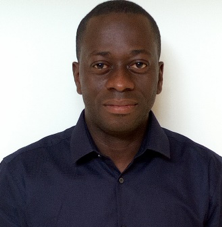
Dr. Ebenezer Annan
Dr. Ebenezer Annan was a visiting postdoctoral researcher from the department of Materials Science and Engineering, University of Ghana, Accra - Ghana. He is a Cambridge-Africa Partnership for Research Excellence (CAPREx) fellow. Dr. Annan research interest is in ‘Materials for Water Filtration and wastewater treatment’. In his spare time he enjoys playing (and watching) football and tennis.

Bunsho Koyano is a visiting scholar from Japan. He is a graduate student in the Department of Mechanical Engineering, Graduate School of Engineering at The University of Tokyo. He received his B.E. degree (2018) in the Department of Mechanical Engineering at The University of Tokyo. His undergraduate thesis focused on Synthesis and analysis of horizontally aligned single-walled carbon nanotubes (HASWCNTs) supervised by Professor Shigeo Maruyama and Associate Professor Shohei Chiashi. He is investigating the growth mechanism of CNTs. In this group, he is researching reaction between Li battery and HASWCNTs, supervised by Prof. Michael De Volder.

Jean de la Verpilliere
Jean was working on gas-phase synthesis of high throughput self-assembled carbon nanotubes under supervision of Dr. Adam Boies and co-supervision of Dr M. De Volder. The project produced novel nanostructured materials by scalable processes, with a focus on energy storage and water purification applications. Jean graduated from the Ecole Centrale Paris with Masters in Mechanical Engineering and Aeronautics. He is the 2013 George and Lillian Schiff scholar, and is also supported by a CHESS studentship. He is a member of King’s college.
Tsubasa Sui is a graduate student from the Department of Integrative Bioscience and Biomedical Engineering at Waseda University in Japan. He received his B.E. degree (2019) from the Department of Mechanical Engineering at Waseda University in Japan for his undergraduate thesis on "Development of ultra-thin electrodes for vital monitoring that is non-invasive to every life", supervised by Prof. Shinjiro Umezu. Tsubasa is developing early disease detection systems, with his work at the IfM focussing on electrochemical sensor devices utilising CNTs, supervised by Michael De Volder.
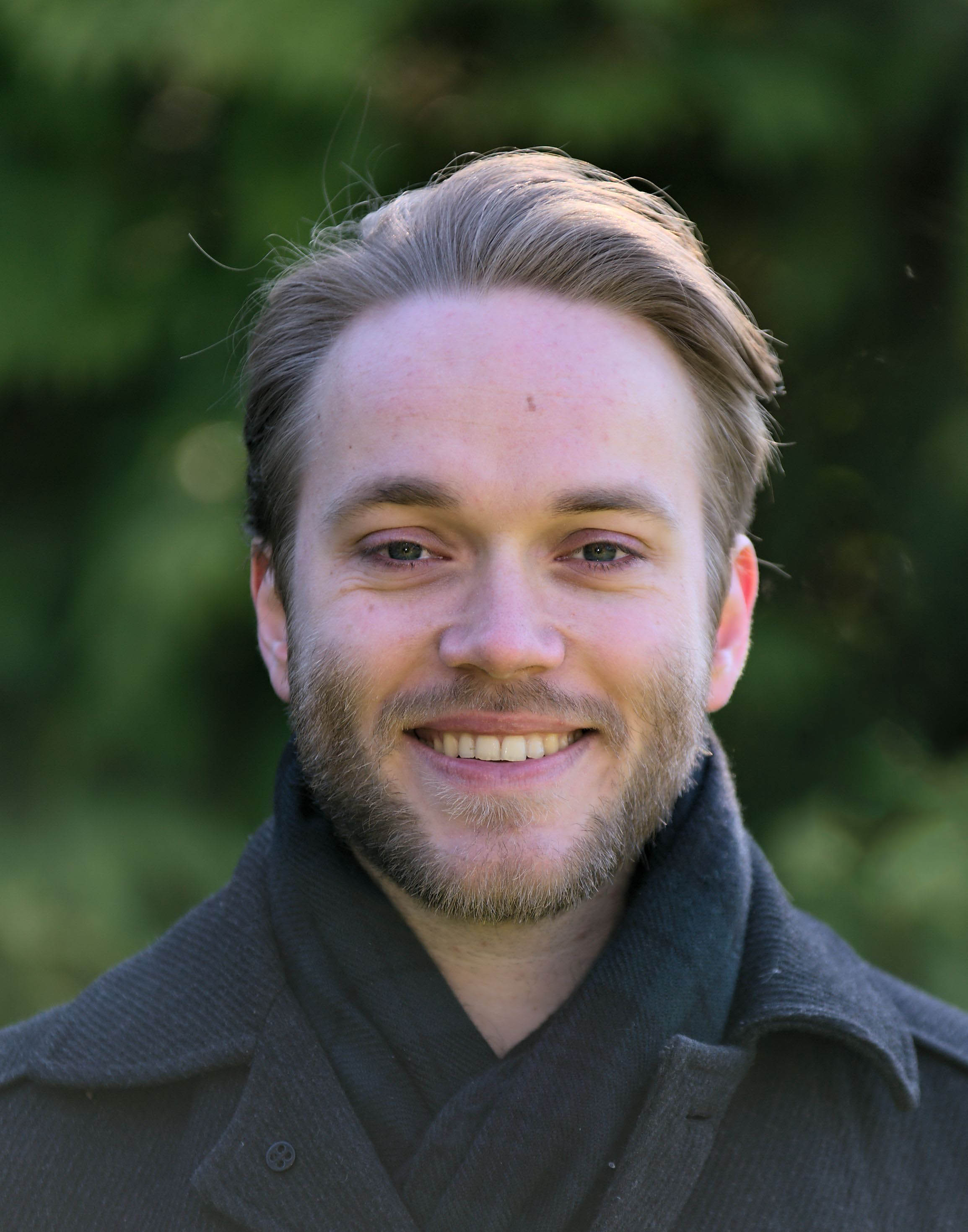
Simon Engelke
Simon Engelke is PhD Student working with Dr Michael de Volder (IfM) and Prof Clare Grey (Chemistry) on vertically aligned electrode structures. Hereby, he is actively involved in the design of advanced electrode structures, their characterisation with PFG NMR and electrochemical measurement techniques, and scaling up of the research.

Dr David Beesley
David undertook his PhD at Imperial College London within the field of organic electronics and device physics. During his PhD Dr Beesley won 1st place in the EPSRC UKICT Pioneers competition for his work on fabrication complex nano-structured electrical devices. Prior to this he completed an MPhil in Nanotechnology Enterprise at the University of Cambridge conducting research on gallium nitride based LEDs. Dr Beesley has previously been a visiting researcher at the National University of Singapore and The University of Nottingham. He has given talks at leading international conferences including MRS spring/fall and has a strong in interest in the fabrication of nano-structures and device physics.

Dr. Nicoló Chiodarelli
Nicoló recently obtained a Marie-Curie Individual Fellowship to join the Nanomanufacturing group, led by Dr. Michael De Volder. Nicoló is specialised in the electronic applications of carbon nanotube (CNT). During his PhD at the University of Leuven (Belgium) he defined the first European industrial technology for making vertical interconnects in microchips using CNT instead of copper. This technology is implemented nowadays at IMEC (Belgium), a leading research centre in Nano-electronics. In 2011 he joined the CEA of Grenoble (France) for a post-doc project to identify the best way to fabricate horizontal CNT-interconnects and to make reliable electrical contacts to Carbon nanomaterials. Nicoló then worked for 2-years at Alstom-Transport (Lyon, France) where he gained industrial process development and optimisation experience.

Dr Jordi Cools is a visiting Ph.D. researcher from imec, Belgium. He obtained his degree in Biomedical Sciences and masters in Bioelectronics & Nanotechnology at Hasselt University. As a fellow of the Research Foundation – Flanders (FWO), he is working on the development of new-generation electrodes for electrophysiological measurements of electrogenic cells, with high spatial resolution and sensitivity. He is visiting the NanoManufacturing group to work on CNT microstructures that can be used as electrodes for high-quality electrogenic cell measurements.

Dr Chandramohan George
Chandramohan received his PhD degree in nanotechnology from the university of Genova, Italy, investigating self-assembly and self-organization processes of nanostructures, and shortly he joined as a postdoctoral fellow in the research group of Prof.Dr.Liberato Manna, developing advanced colloidal routes to produce tailor-made nanocrystals and their surface engineering/functionalization suitable for visible-infrared light harvesting, bifunctional heterogeneous catalysts, and Li-ion batteries. His long term research interests include the fabrication and assembly of novel nanostructures, and to develop their applications ranging from plasmonic to photo-catalytic to flexible energy conversion/storage devices, as sustainable and cost-effective future technologies.

Dr Mehdi Golozar
Medhi undertook his PhD as a Marie Curie Researcher at the Cambridge Centre for Medical Materials at the University of Cambridge (UK), investigating the development of porous, bioactive titanium oxide-based coatings using plasma electrolytic oxidation. Prior to this, he completed his B.A.Sc. and M.A.Sc. at the Department of Materials Science and Engineering at the University of Toronto (Canada). He also gained industrial experience at Honda (Canada), where he spearheaded several research projects and their implementation into mass production. His long term research interests include micro-/nano-manufacturing of novel, functional surface structures with a wide range of applications, from medicine to sustainable energy conversion and storage devices.
Dr Sarah Jessl
During my PhD in the Nanomanufacturing group I worked on the fabrication of 3D CNT structures (mostly honeycomb structures) and their subsequent modification with metal oxides in microwave-assisted, hydrothermal processes. The applications of those structures included anodes for Lithium-ion batteries and photoelectrodes for watersplitting, as well as a range of other outside of energy storage. After my PhD I started as a lab team lead in Material Physics and Analytics at BASF in Germany where I am responsible for key characterization techniques for the many research projects.

Dr Christoph Messner
Christoph received his PhD degree in Chemistry from the University of Innsbruck, Austria. His PhD thesis was a unique combination of analytical and theoretical chemistry. He developed new enrichment techniques for phosphopeptides and used quantum mechanical methods to explain these bioanalytical techniques at the molecular level. He obtained a University of Cambridge / Wellcome Trust Junior Interdisciplinary Fellowship, studying metal ion-metabolite complexes in hydrothermal conditions. Within this project he worked together with two research teams at the University of Cambridge, the group of Dr. Markus Ralser at the Biochemistry department and the Nanomanufacturing group of Dr. Michael De Volder.
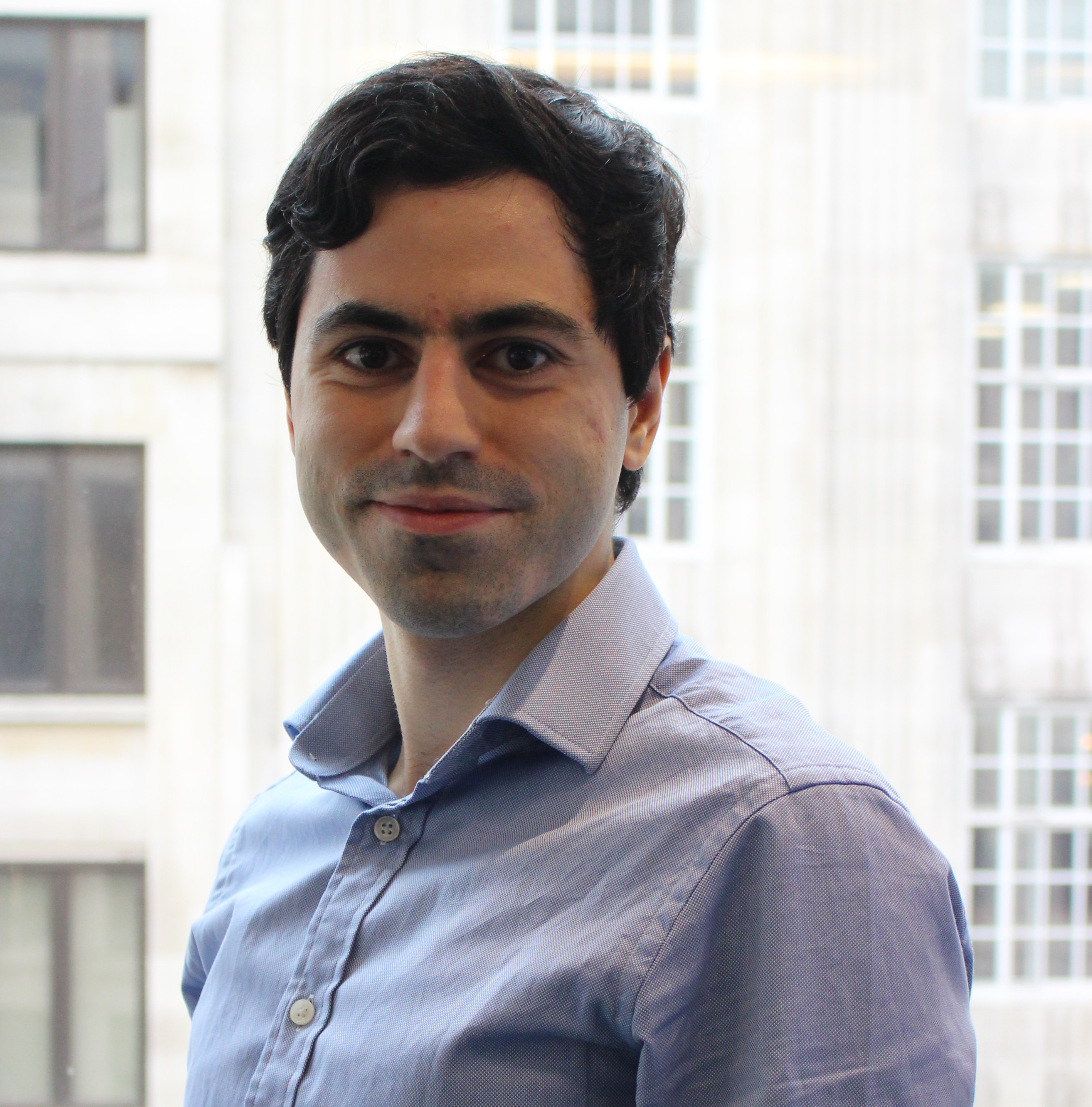
Dr Hadi Modarres
Hadi received his PhD degree from the University of Cambridge, investigating graphene nanoparticle hybrids and their assembly for Li-ion batteries. During his PhD he undertook an internship to use machine learning for image recognition of scanning electron microscope images. He joined the NanoManufacturing group from the Nano Doctoral Training Centre PhD programme. Prior to this, he obtained his MEng in Electrical Engineering from the University of Cambridge where he worked on inkjet printing of graphene and 2d material inks for flexible electronics.
 Dr Luca Nucara
Dr Luca Nucara
Luca is a visiting PhD student from The BioRobotics Institute, Scuola Superiore Sant'Anna (Italy). He is working on new smart carbon nanotubes composites for sensing applications. His research interests include materials chemistry, smart materials and self-assembled photonic structures

Dr Jan Rongé
Jan is a visiting resaercher from the University of Leuven, Belgium. He obtained his MSc in catalytic science at the Faculty of Bioscience Engineering. As a fellow of the Research Foundation - Flanders (FWO), he is investigating photoelectrochemical cells for solar hydrogen production. He is currently focusing on the arrangement of carbon nanostructures on silicon surfaces to be used as scaffolds for semiconductors and electrocatalysts in energy applications.

Charlie Stokes
Charlie is a student in Queens' College and the Department of Materials Science & Metallurgy at the University of Cambridge. She is studying for an MPhil in Micro and Nanotechnology Enterprise and works on a project to design carbon nanotube biosensors under the supervision of Dr. Michael de Volder and Dr. Ronan Daly. Her interests are in new materials for design, environmental and medical devices and manufacturing. She previously completed internships at Nanyang Polytechnic in Singapore, UCL, and London based design studio ROLI.
Sing Teng Chua
Chua Sing Teng was a visiting undergraduate student from the National University of Singapore (NUS), who had just finished her 3rd-year study of Physics and Materials Science. Under the supervision of Dr. Michael de Volder, she worked on the fabrication and optimisation of lithium sulfur and selenium battery using Tortech carbon nanotube (CNT) film.
Laurien Van Den Broeck
Laurien is a visiting PhD student at the Nanomanufacturing group. She is working on the fabrication of advanced CNT structures for bone tissue scaffolds. Her work includes the development of CNT-gel composites. She is part of the Functional Materials group of prof. dr. Jennifer Patterson at the university of Leuven in Belgium, where she is pursuing her PhD.

Dr Johannes Vanpaemel
Johannes is a visiting researcher from imec, Belgium. He obtained his degree in physics and masters in Nanoscience at the University of Leuven, and is affiliated to imec - an industry funded research institute focusing on nanoelectronics. He has been studying the growth of carbon nanotubes to enable their integration in nanoelectronics. He is visiting the Nanomanufacturing group to work on the manipulation of carbon nanotubes into highly packed monolayers that can be used as a channel material for transistors.
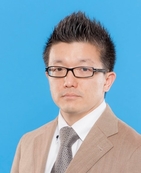
Joon Wan Kim received his Bachelor of Science from the Department of Mechanical Engineering at the POSTECH in 1999. He received his Master of Science (2002) and PhD (2005) at the Department of Precision Engineering, Graduate School of Engineering, the University of Tokyo. From 2002 to 2005, he was also a Junior Research Associate at Materials Fabrication Laboratory, RIKEN. as an assistant professor, he worked at Precision and Intelligence Laboratory, Tokyo Institute of Technology, from 2005 to 2013. He has been an Associate Professor at the Institute of Innovative Research (IIR), Tokyo Institute of Technology. He has also been a visiting academic fellow at the Department of Engineering, the University of Cambridge, since August 2021. His current interests are micromachining and MEMs for functional fluid devices.
Contact: woodjoon@pi.titech.ac.jp
Sul Ki Park joined the IfM in September 2019 as a postdoctoral associate in Michael De Volder’s group. She received her PhD (2019) in the Department of Chemical Engineering at the Sungkyunkwan University in South Korea. She investigates nanomaterials as electrodes in energy storage systems such as Li-ion batteries and supercapacitors. In addition, she has focused on understanding the energy storage mechanism using in-situ analysis. Her current research is focused on the characterisation of electrochemical properties of electrode materials by fabricating micro-electrochemical cells using the lithography process.
Contact: sp991@cam.ac.uk
Purna joined IfM in August 2021 as a research associate in the group of Prof Michael De Volder. Purna was awarded his PhD in 2019 from Interdisciplinary Graduate School, Nanyang Technological University (Singapore). He then worked in Vflow Tech Singapore as research and development scientist. His research has mainly focused on design and development of redox flow battery stack of various sizes and designs, evaluation of active material for stacks development, research on materials and designs.
Contact: pcg26@cam.ac.uk
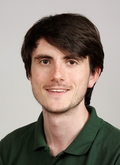
Charlie Barty-King
Charlie is developing a structurally-coloured, iridescent material hydroxypropyl cellulose, HPC, for use in various industries. The material is easily formulated in water, is fully bio-compatible and can dynamically respond to its environment, observed by a change in colour. Charlie and his supervisor, Michael De Volder (Nanomanufacturing), and advisor, Silvia Vignolini (Bio-inspired Photonics), are collaborating to bring this lab-proven photonic technology into the industrial domain by investigating applications and industrial scalability.
More information on HPC can be found here and here. While a synopsis of Charlie's work before joining the Nanomanufacturing group can be found here.
Contact: chb50@cam.ac.uk
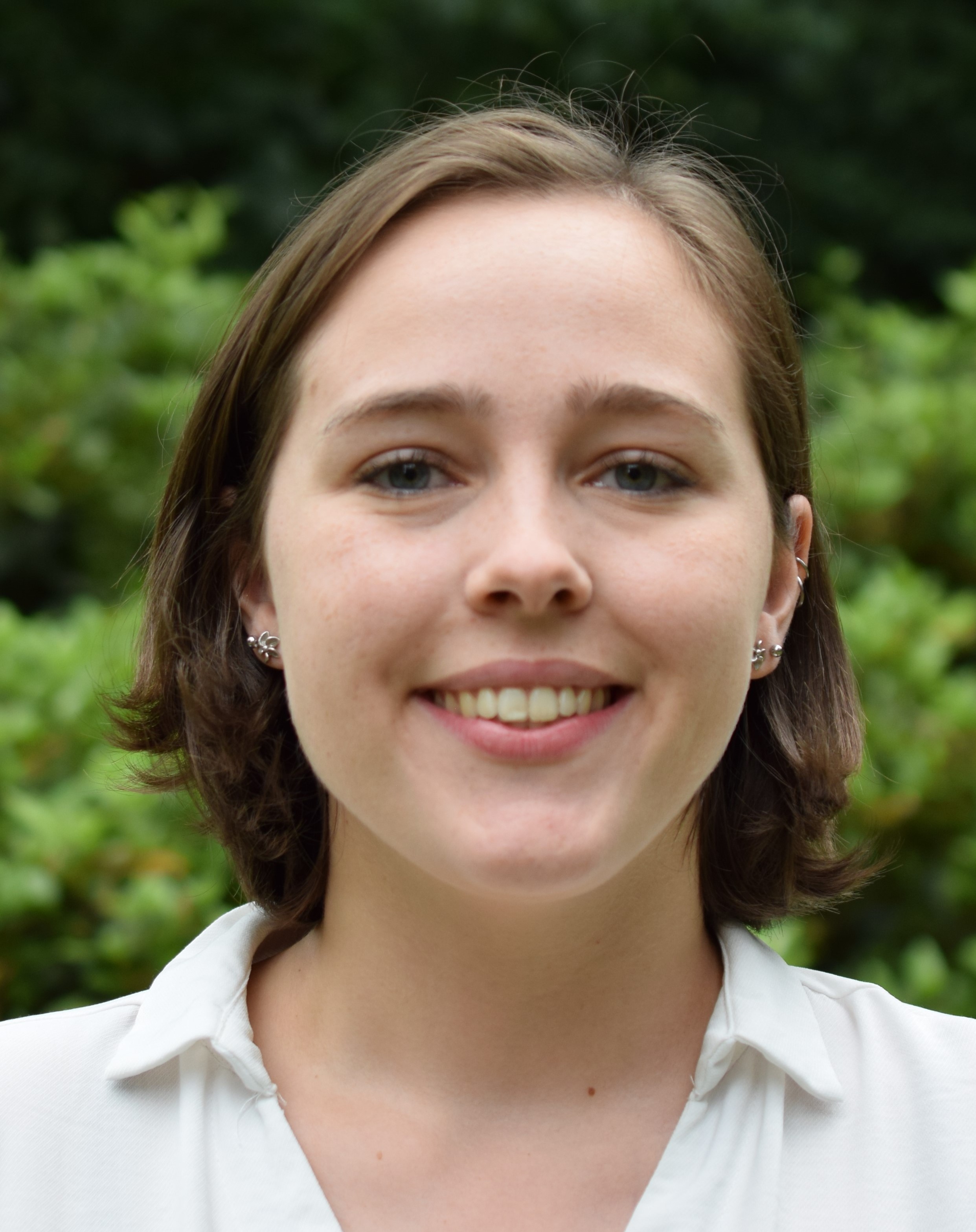
Aoife is a PhD student with the NanoDTC (2018 cohort) working on artificial cilia forests, which are composed of CNT scaffolds functionalised with PNIPAM (a thermoresponsive polymer). The aim is to create light- and temperature-responsive cilia arrays for applications such as smart surfaces with switchable emissivity. Her primary supervisor is Prof Jeremy Baumberg of the NanoPhotonics Centre and she is co-supervised by Dr Michael De Volder.
Aoife completed her bachelor's degree in Nanoscience, Physics and Chemistry of Advanced Materials in Trinity College Dublin, Ireland.
Contact: adg49@cam.ac.uk
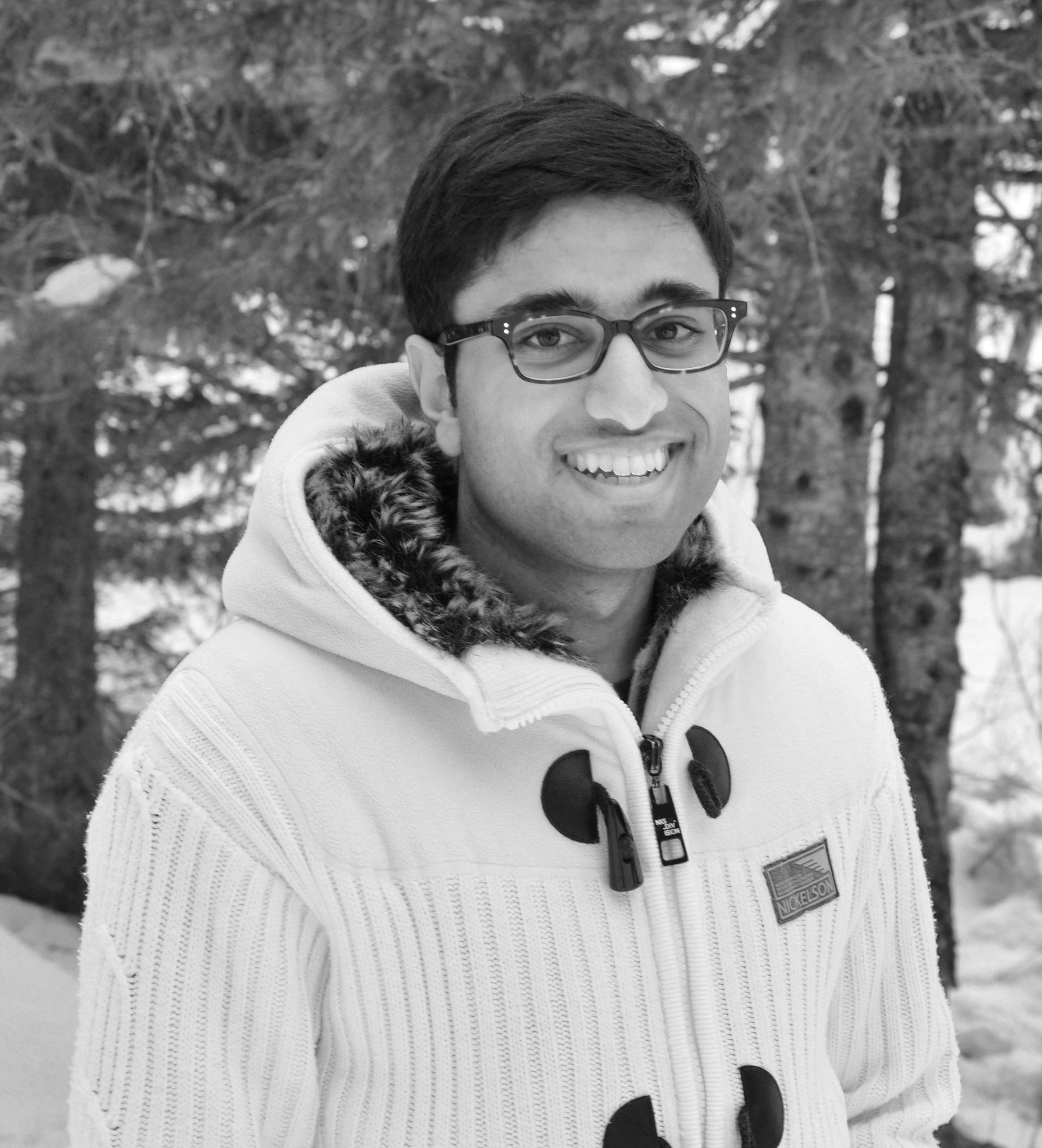
Vinay Malhotra
Vinay is a member of Darwin College where he achieved his MRes through the Graphene Centre for Doctoral Training (CDT) at the University of Cambridge and is now researching 2D nanomaterial structures for improving electrode performance in redox-flow battery systems. The project is jointly supervised by Dr Michael de Volder and Professor Clare Grey, and is an industrial collaboration with Royal Dutch Shell plc. (LON:RDSA). Vinay graduated with a BSc in Physics with Nanoscience and technology at the University of Leicester. Vinay has interests in escape rooms, Japanese language and culture, photography, technology, politics, computers & video games, visual narratives and music.
Contact: vsm28@cam.ac.uk
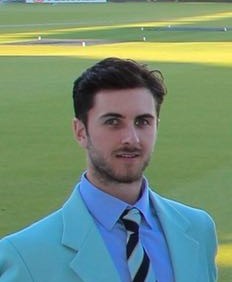
Angus Mathieson
Angus is a PhD candidate working collaboratively with the IfM and Cavendish Laboratories using hybrid perovskite organic semi-conductors to develop a novel photobattery device. He is jointly supervised by Dr Michael DeVolder (IfM) and Dr Felix Deschler (Optoelectronics, Physics).
Angus completed his MSc (Physics) degree at Durham University in 2017 during which he developed a new approach to the extraction and deposition of graphene and other two-dimensional materials for thin film applications. In the following year he obtained an MRes (Distinction) degree as part of his Graphene CDT course at the University of Cambridge, during which he undertook a theoretical project using density functional theory to model the changes in the electronic and vibrational properties of layered materials as they approach the two-dimensional limit. He then begun his current work in 2D/3D organo-metal hybrid perovskites for photovoltaic and battery applications.
Contact: agmm2@cam.ac.uk
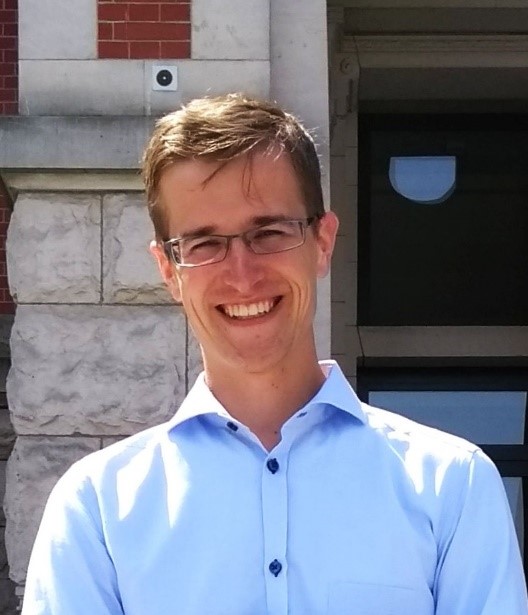
Jędrzej Morzy
Jędrzej completed his BSc and MSc in Nanotechnology at Gdańsk University of Technology in Poland. Currently, he is a PhD student within the Doctoral Training Centre in Nanoscience and Nanotechnology (NanoDTC) doing a PhD project focused on lithium ion battery cathode materials’ degradation during cycling using in situ electron microscopy. He primary supervisor is Dr Caterina Ducati (Electron Microscopy Group, MSM Dept.) and co-supervised by Dr Michael De Volder.
Contact: jdkm2@cam.ac.uk
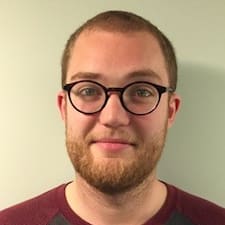
Chris Valentine
The focus of the work Chris is undertaking for his PhD is on the development of carbon nanotube based electrodes for use within electrochemical sensors. Chris is mainly working on producing structured CNT forests, which can be used as the working electrode within a three-electrode system. He is controlling the structure, porosity and surface area of the CNT forest, as well as the functionalisation of the CNT surface to improve the design of the next generation of electrochemical sensors. Additionally Chris works on disposable paper based electrochemical sensors, again studying the affect structure has on the final sensing capabilities of the devices. Chris is a member of the Sensor Technologies and Applications CDT and a recipient of the Leete Premium award.
Contact: cjv22@cam.ac.uk
 Bo Wen
Bo Wen
Bo Wen is a Graphene CDT candidate who joined NanoManufacturing group led by Dr Michael De Volder in 2018, focusing primarily on Hierarchical rGO-Layered Oxide Composites for High Energy Density Lithium-ion Battery Cathodes. The PhD project is co-supervised by Prof. Clare Grey FRS from Chemistry. His MRes year was finished at Cambridge Graphene Centre, during which he worked on the silicon-graphene hybridised materials for the anodes of lithium-ion batteries. Prior to this, Bo Wen graduated as the 2017 Top Graduate in BEng Chemical Engineering from University of Manchester. He is a member of Clare College.
Contact: bw394@cam.ac.uk
Ismail is a PhD researcher who is part of the Graphene CDT and is working on project is co-supervised by Dr Adrian Fisher (Chemical Engineering and Biotchenology), Prof Manish Chhowalla (Material Science and Metallurgy) and Michael De Volder (Department of Engineering). The focus of his project is to research biomimetic electrochemical actuators using 2D battery materials.
Ismail completed his MPhys in Theoretical Physics at the University of Manchester where he researched the dynamics of football with Manchester City. During his degree he embarked on a prestigious year abroad at the University of California, Berkeley where he modelled active volcanoes in California using seismic waves. In his MRes year at the University of Cambridge he researched the Hall effect in high-T superconductors, and also the interaction of graphene with algae for applications in bio-photovoltaics.
Contact: is448@cam.ac.uk
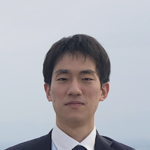
Hiroki Yachida is a visiting graduate student from the University of Tokyo, Japan. He finished his undergraduate course in the Department of Mechanical Engineering at the University of Tokyo in 2022 and is currently a master’s student at the same institution. His research theme focuses on the wetting properties of structured superhydrophobic surfaces, supervised by Professor Timothée Mouterde.
Contact: hy386@cam.ac.uk
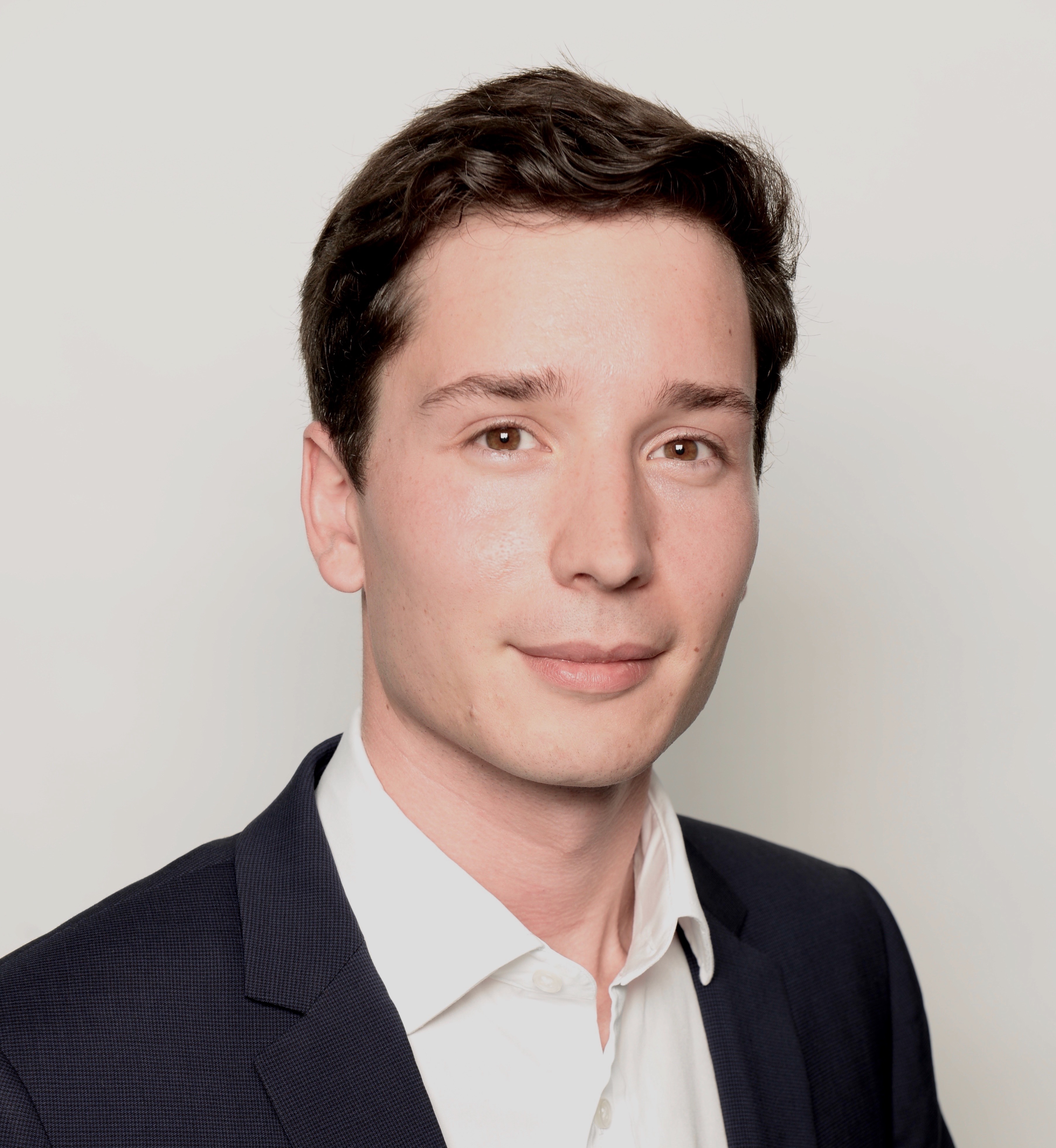
Maxime Burgonse
Maxime Burgonse from EPFL (Switzerland) is visiting the University of Cambridge as a part of his master degree. His research is focused on advanced manufacturing techniques of carbon nanotubes (CNTs) microstructures for space applications.
Contact: manb2@cam.ac.uk
Lifu Tan
Lifu Tan was a Graphene CDT candidate who joined the NanoManufacturing group led by Prof Michael De Volder in 2020 to complete his PhD, focusing primarily on Photo-rechargeable energy storage devices using 2D materials. The project was co-supervised by Prof. Jeremy Baumberg and Prof. Clare Grey.










